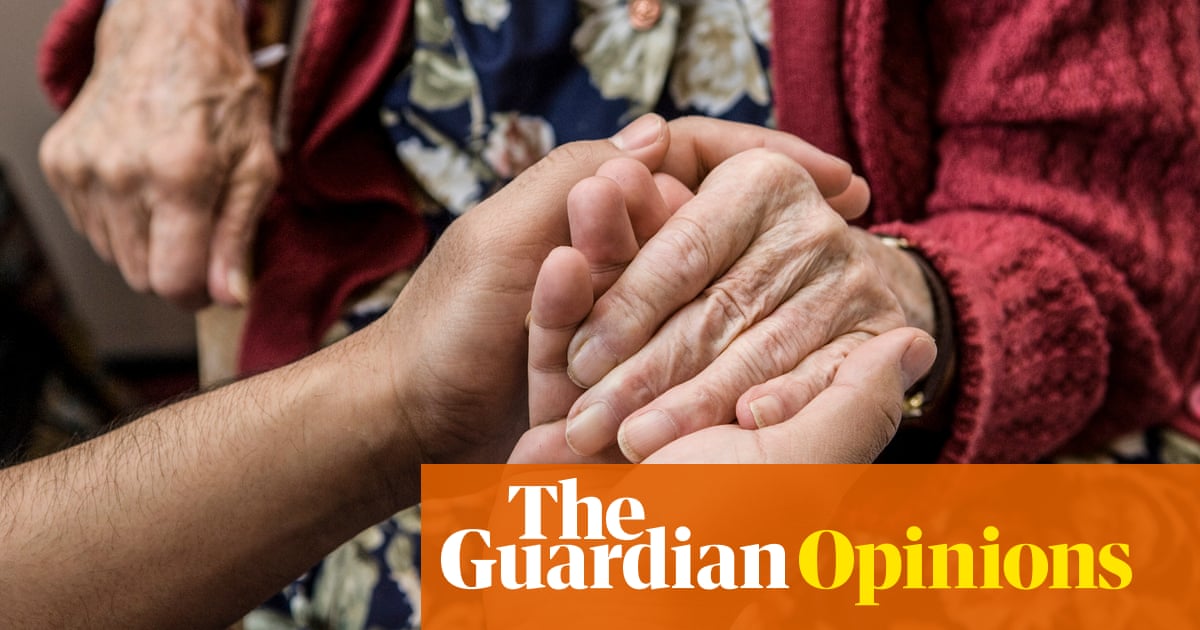The uncustomary quiet of a Sunday morning in the emergency department is broken by a universally relevant question.
“And if your heart were to suddenly stop beating, what would you like us to do?”
Standing outside, all I hear is a garbled response.
“That’s right,” the voice reassures. “You wouldn’t want us jumping on your chest, would you?”
It seems to me that the doctor is having a one-way conversation, the kind I am about to have with my patient.
Following a bad fall months ago, my patient can’t speak or move. I wonder what “further functional decline” could possibly entail but her nursing home has sent her to emergency. She has pneumonia and a high sodium level not compatible with life. Yet, when I stand next to her and take her hand in mine, she smiles at me, displaying not an iota of distress.
The mild pneumonia might not take her life, but the untreated sodium level almost certainly will. What to do? Antibiotics and fluids or not?
“What would you like me to do?” I muse, hoping she will magically answer.
She smiles benignly. I am torn.
The doctor in the adjoining cubicle clearly doesn’t want her patient undergoing CPR. I can’t see how “saving” my own patient from death would accord her better quality of life. Each doctor is making an irrevocable decision about a patient, its enormity compounded by the fact that both patients have limited capacity to participate in the conversation.
But what if the patient asked, “Doctor, if you were in my situation, what would you do?”
Do doctors treat patients in the same way they would want to be treated at the end of life?
Anew studysheds some light on this issue.
Researchers surveyed 1,157 doctors including GPs, palliative care physicians and other medical specialists working in diverse areas including Canada, Belgium and Italy, as well as the American states of Oregon, Wisconsin and Georgia, and the Australian states of Victoria and Queensland. These communities range from being socially progressive to religiously conservative to secular, with varying laws around assisted dying.
The study presented doctors with two end-of-life scenarios. In one, they have Alzheimer’s disease. They don’t recognise loved ones, refuse oral intake and are more withdrawn. In the second, they have advanced cancer not amenable to treatment. They are experiencing severe pain and agitation, have a prognosis of no more than two weeks, and are competent to make decisions. In each case, a palliative care provider and the option of inpatient hospice is available.
With preferences for end-of-life decisions including CPR, hydration, tube feeding, intensifying symptom alleviation, deep sedation until death and, where legal, assisted dying, doctors were asked to rate their own preferences from “a very good option” to “not at all a good option”.
Across all jurisdictions, physicians universally rejected the idea of CPR and mechanical ventilation (preferred by less than 1%), tube feeding (less than 4%) and intravenous hydration (about 20%). Of all physicians, over 90% considered it important to intensify symptom relief and just over half considered euthanasia a good or very good option. Notably, a third of physicians would consider using medications at their disposal to end their own life.
There are many interesting findings (regrettably, behind a paywall) but the bottom line is that when it comes to their own end-of-life care, doctors use their lived experience of medicine to choose differently, and arguably, more wisely.
This should give patients and doctors food for thought.
We are living in an era of medicine that often conflates more with better, an especially vexed issue at the end of life. In my own field of oncology, despite real concerns abouttime toxicity, overtreatment is believed to be a professionally sanctioned approach. No oncologist wants to be seen to “do nothing” even if eschewing aggressive and harmful treatments in favour of quality of life is the opposite of doing nothing.
But the more I look around, I can’t help thinking that oncologists are unfairly cast as the worst offenders whenevidenceof futile interventions is rife across healthcare.
How do grossly impaired patients end up being tube-fed? Why are frail, elderly people attached to ventilators? Why do unconscious patients receive antibiotics in their final days? Frankly, these events happen because patients or relatives demand them, and doctors find themselves unwilling or unable to say no.
The desire for agood deathis as universal as the fact of dying. The researchers of this study should be commended.
If I were a patient, here is how I might use the study findings to help myself.
Instead of directly asking my treating doctor(s) what they would do in my situation (and risk a non-answer), Iwould inquire what factors they would consider in reaching a crucial medical decision. I would acknowledge that personal preferences vary and explain that their library of experiences might deepen my understanding of what to do.
As a physician, this study reminds me of the privilege of my role which gives me a sound basis for making highly consequential decisions.
The question is how to use my knowledge and experience to empower my patients without blurring the line between personal bias and professional guidance. I believe this is possible by listening carefully to patients’ stated goals and including the views of their loved ones. These conversations need time and trust, which is what underpins good doctor-patient communication.
End-of-life decisions are a sensitive and complex situation, but one thing is evident to me.
If doctors clearly favour less aggressive measures at the end of life, their patients deserve to know why.
Ranjana Srivastava is an Australian oncologist, award-winning author and Fulbright scholar. Her latest book is called A Better Death
